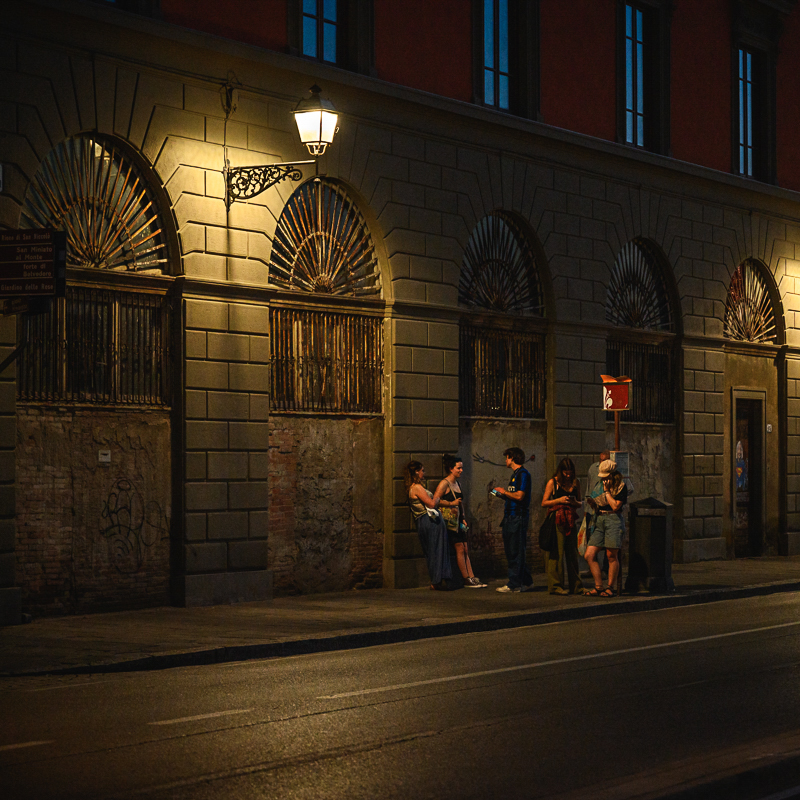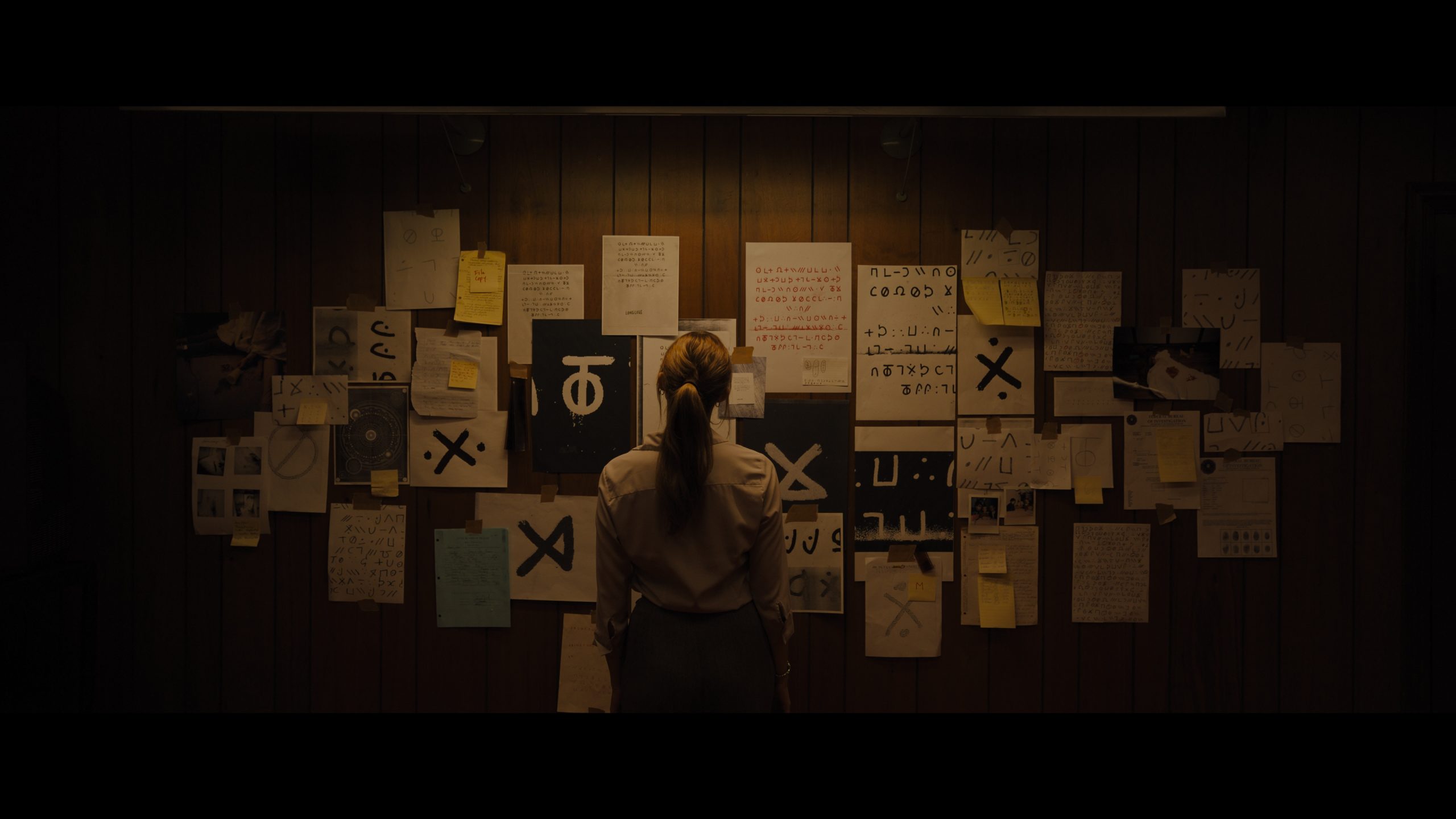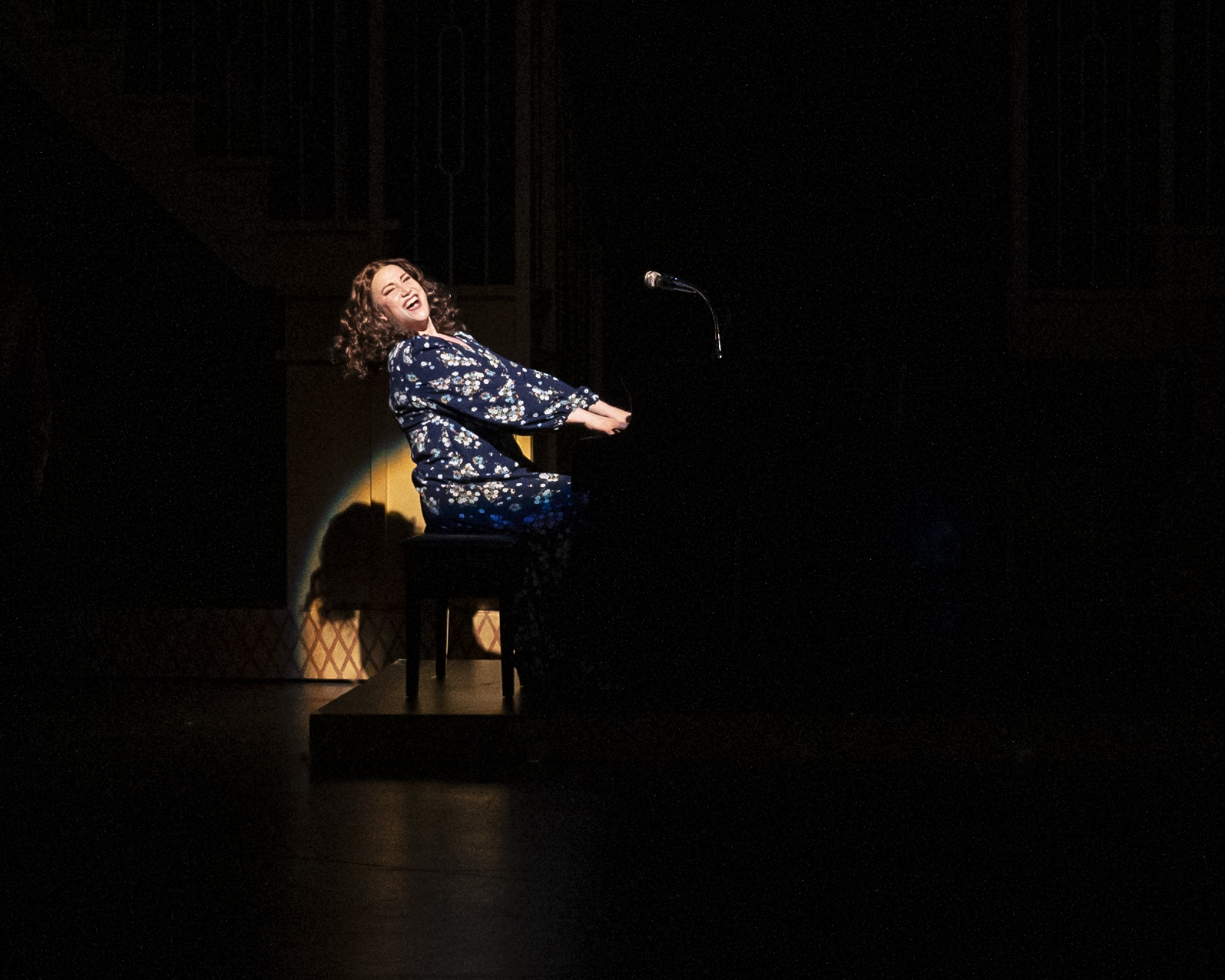It is only natural that Annie Baker would eventually write and direct a feature film. The accomplished playwright, whose work has been performed in D.C. theaters including Studio and Signature, has always had an interest in the movies. You may recall The Flick, the play that earned Baker a Pulitzer, is set in a movie theater and includes scenes in which a character performs entire monologues from Pulp Fiction. In a counterintuitive way, Baker’s unique sensibilities translate well into film. Her debut, a coming-of-age drama called Janet Planet, includes hallmarks from her plays: an interest in silence, and an oblique approach to character development. Yes, her film requires patience and trust, but it all builds to a sharply observed film with unique rewards.
The title refers to Janet (Julianne Nicholson), a hippie in Western Massachusetts who makes a living as an acupuncturist. She has a strange, close relationship with her daughter, Lacy (Zoe Ziegler), who is on a summer break between fifth and sixth grade. When the film opens, Lacy is so desperate to leave her overnight summer camp that she tells her mother she plans to kill herself. (Janet knows Lacy exaggerates, and relents anyway). Gloomy and odd, Lacy is the kind of precocious child who disarms adults with her persistent deadpan commentary.
Over the long, languid summer, Lacy observes Janet and the adults who drift into their lives. There’s Janet’s boyfriend Wayne (Will Patton), a soft-spoken man who barely tolerates Lacy, and Regina (Sophie Okonedo), a friend who just got out of a toxic relationship. Lacy regards them all with a mix of curiosity and gentle hostility.
Janet Planet is not strictly autobiographical, and yet Baker was Lacy’s age in 1991, the year the film takes place. More importantly, there are details in it that are so specific and tenderly observed that we suspect Baker borrows from her formative years. A minor subplot, for example, involves Lacy’s piano lessons. Her teacher, a kind older woman with a deliberate manner, uses the Suzuki method, a popular pedagogical approach for young music students. In her lessons, Lacy plays “Mississippi Popcorn,” a simple tune that helps teach rhythm, with a mix of determination and fear. Each line, whether it’s Lacy telling her teacher she forgot to practice or Janet complimenting Lacy’s performance, has a kind of detail that can only be remembered. When I was Lacy’s age in the early 1990s, I too played the same songs with a piano teacher who looked over my shoulder—the tangibleness of these scenes makes the argument that Baker is likely drawing from her past.
That is not to say, however, that I only liked Janet Planet because it reminds me of my piano teacher (truth be told, I hated taking lessons). Baker has a gift for camera placement, with many shots conveying a lot without all that much happening. She mostly films from Lacy’s perspective, with compositions having a limited, sometimes obscured angle to re-create little moments that leave lasting impressions. Sometimes Janet drifts into the camera, her face or body partially obscured, possibly because it’s how Baker recalls her own mother.
When there is drama, it is because Janet is being cavalier, making no attempt to shield Lacy from adult problems. She talks frankly about her effect on men, confessing to her daughter things she previously never said aloud, while Lacy listens with aching attention. Baker doesn’t aim to criticize Janet, or anyone, in her film—what interests her is how these adults cannot help themselves. Almost everyone is gentle and polite, yet there are tremors, and sometimes depth, of feeling that can only be felt by not looking too closely at these flawed, utterly recognizable characters.
Nicholson has been a reliable actor for years, and yet she’s never been given a meaty lead role like this. As Janet, she plays a woman capable of deep kindness, but her own life experiences curled that kindness into resentment. It is a quiet performance, but a towering one. Ziegler is also well-cast as Lacy, an awkward girl with huge eyes and an “adult” demeanor that suggests an absence of joy. Baker never judges, and instead regards them with a facsimile of the eye she had when she was also a girl, which doesn’t mean her sensibilities are flawed. Quite the opposite: Janet Planet has such a specific sense of time and place that you get the uncanny feeling Baker has completely reconstructed her past. It’s a joy to follow Lacy’s journey, even when she is sullen, because there is no nostalgia. Baker simply recalls and re-creates—often with astonishing detail—understanding that dogged specificity is a way not just to reproduce, but also to honor.
Janet Planet (PG-13, 113 minutes) opens in area theaters on June 28.





